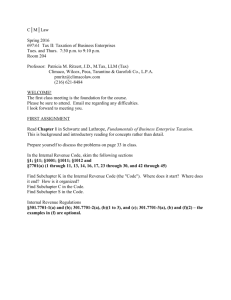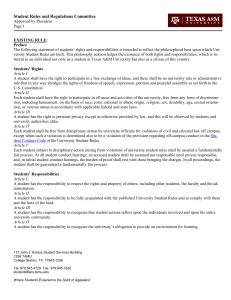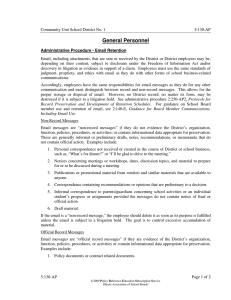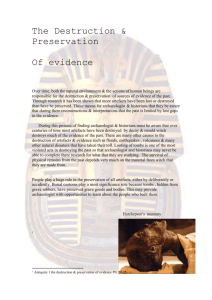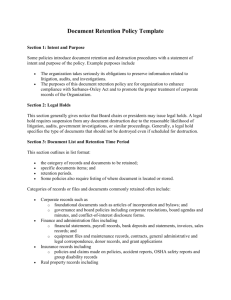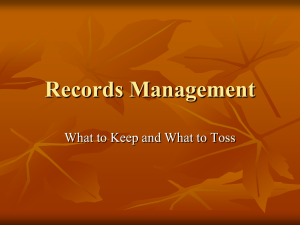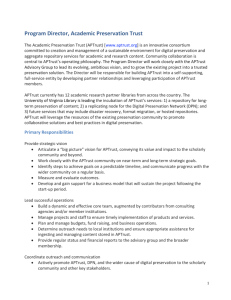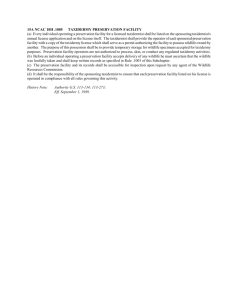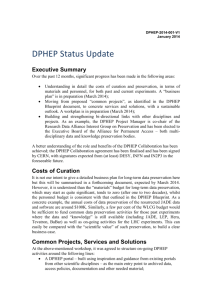An Introduction to Records Management
advertisement
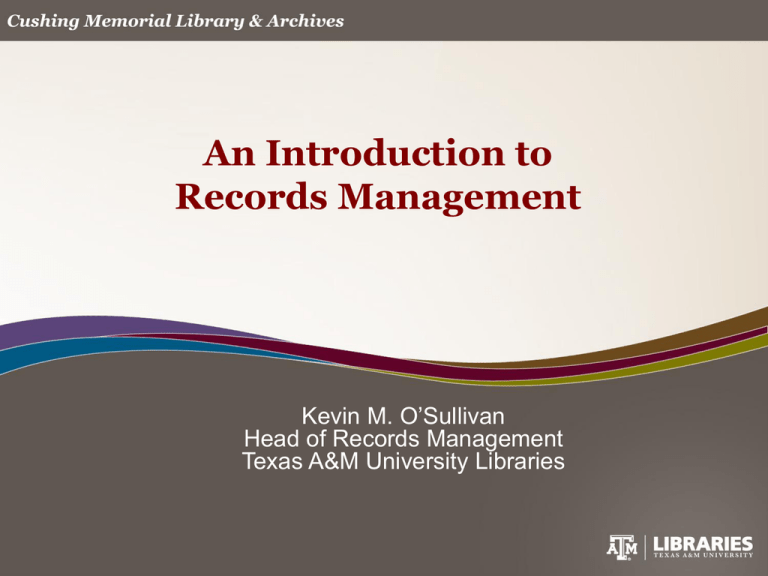
An Introduction to Records Management Kevin M. O’Sullivan Head of Records Management Texas A&M University Libraries Topics to be Covered: • What is Records Management? • Services Offered at TAMU • Digitization and Electronic Records Basics of Records Management • The application of management techniques to the creation, use, maintenance, retention, preservation, and destruction of state records for the purpose of improving the efficiency of recordkeeping, ensuring access to public information under Chapter 552, and reducing costs. • The term includes: – – – – – – The development of records retention schedules The management of filing and information retrieval systems The adequate protection of state records that are vital, archival, or confidential The economical and space-effective storage of inactive records Control over the creation and distribution of forms, reports, and correspondence Maintenance of public information in a manner to facilitate access [by all stakeholders] Preservation and Management of State Records and Other Historical Resources Government Code, Chapter 441, Subchapter L Section 441.180. What exactly is a Record? • Any written, photographic, machine-readable, or other recorded information created or received by or on behalf of a state agency that documents activities in the conduct of state business or use of public resources. Preservation and Management of State Records and Other Historical Resources Government Code, Chapter 441, Subchapter L Section 441.180. What exactly is a Record? • Each state agency shall create and maintain records containing adequate and proper documentation of the organization, its functions, policies, decisions, procedures, and essential transactions of the agency designed to furnish information to protect the financial and legal rights of the state and any person affected by the activities of the state agency. Preservation and Management of State Records and Other Historical Resources Government Code, Chapter 441, Subchapter L Section 441.180. Life Cycle of a Record Records Retention Schedule Storage & Destruction Forms Laserfiche Scanning Original Documents • Authenticity – Record is what it says it is • Reliability – Record is a full and accurate representation of the business transaction • Integrity – Record is complete, unaltered, and protected from unauthorized access and alteration • Usability – Record can be located, retrieved, and used Destruction of Original Documents • Yes, you can destroy the originals* • *but…You must ensure the quality of the digital copies • Avoid a “Scan & Shred” mentality Other Resources • Principles of Records Management (Quarterly, through EOD) • Fundamentals of Managing Departmental Records (TrainTraq #2111143) Texas A&M University Records Management Kevin M. O’Sullivan Head of Records Management 330 Agronomy Rd., Ste. 160 (979) 458-1470 RMDesk@library.tamu.edu http://library.tamu.edu/records
